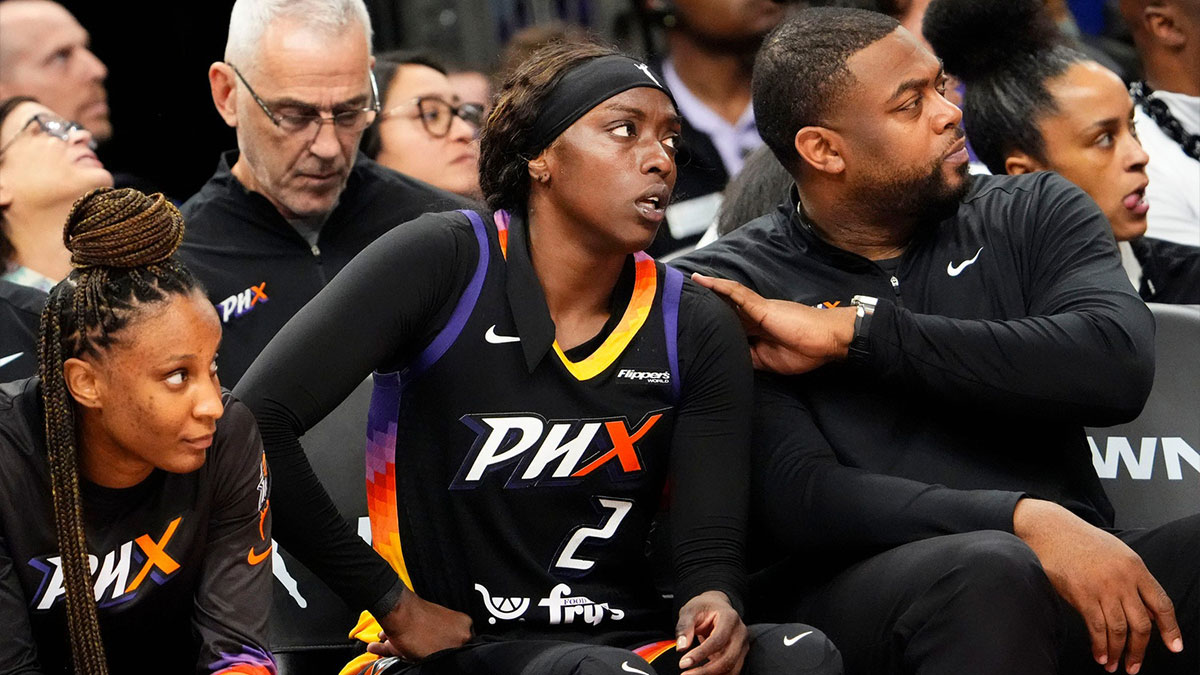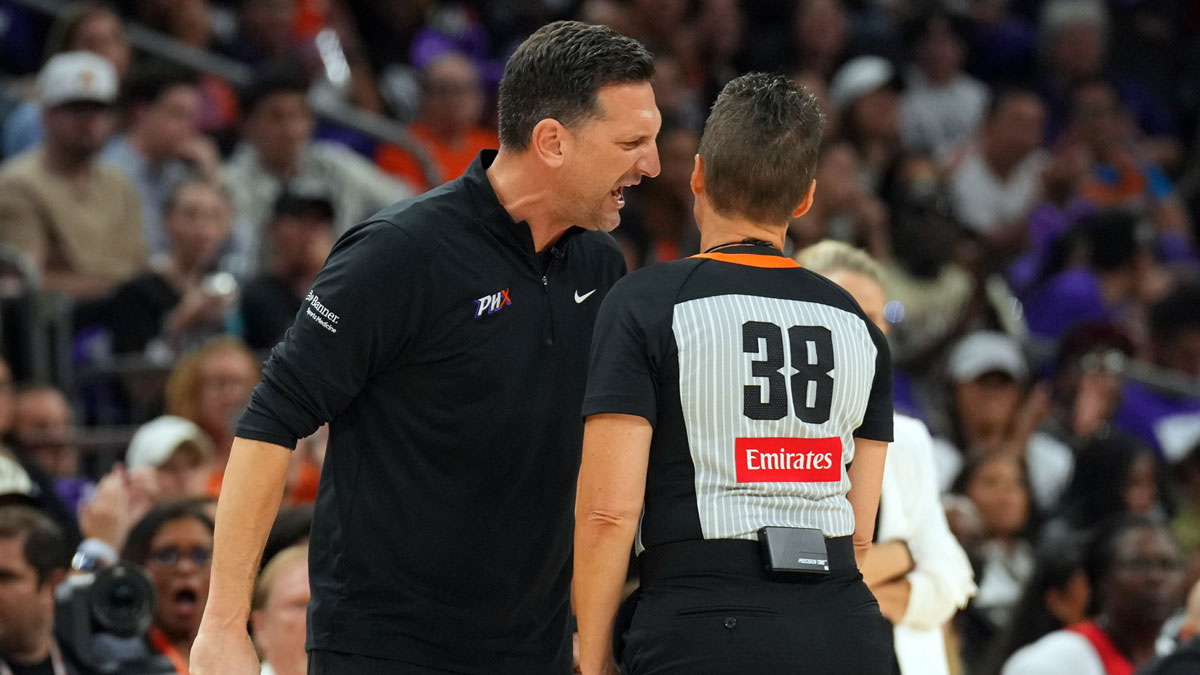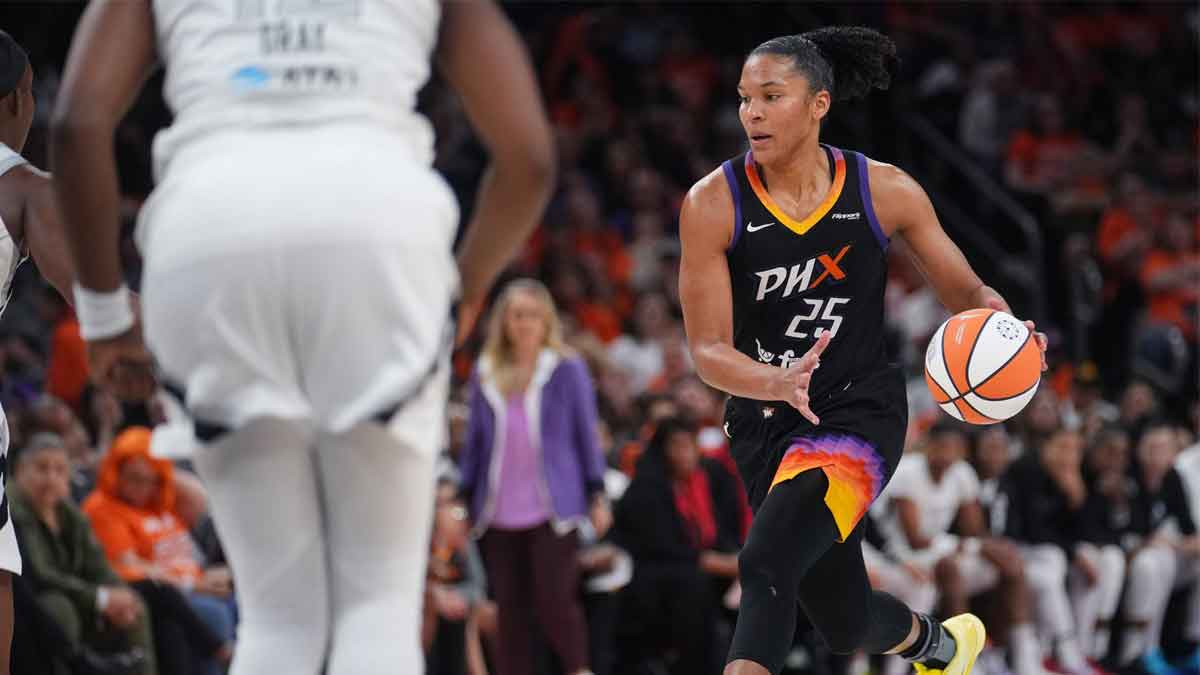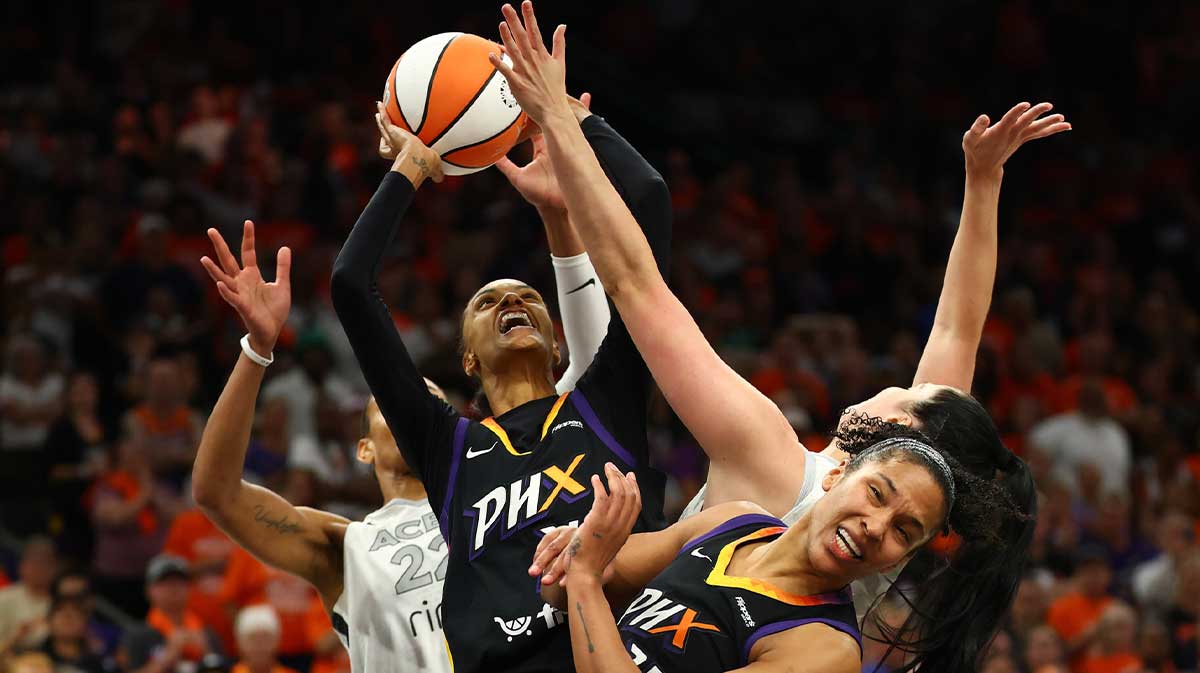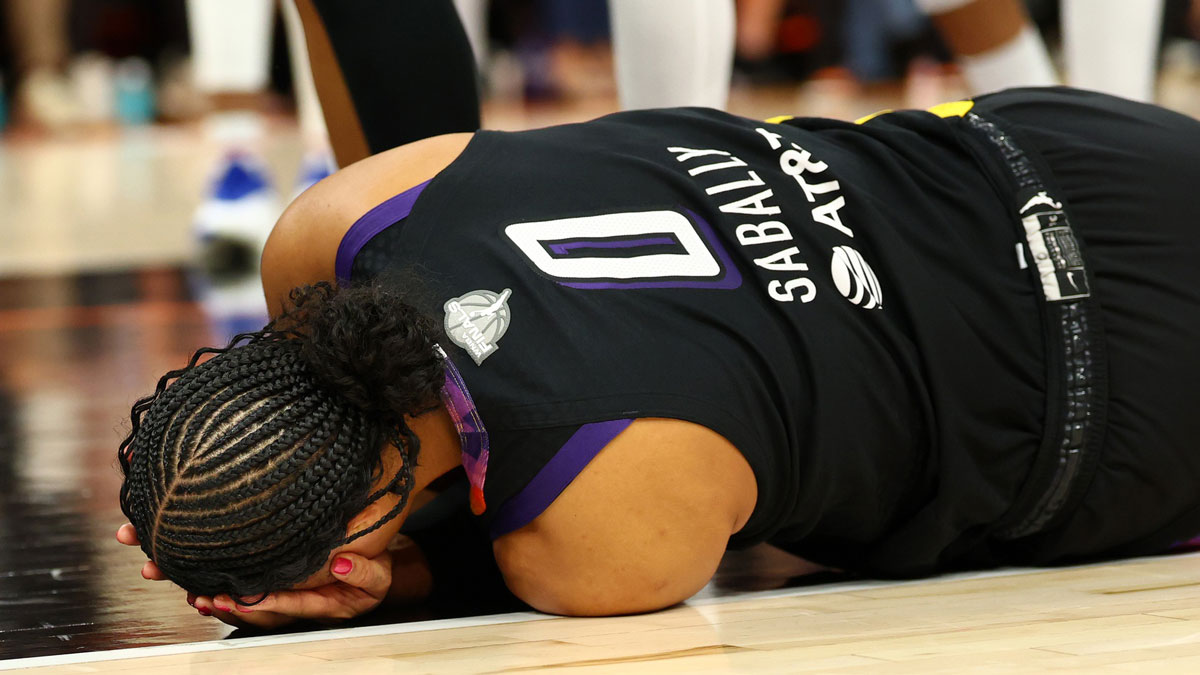The WNBA Playoffs are the highest stage for basketball excellence, where skill, preparation, and resilience all come together under intense pressure. After suffering a challenging 82-69 Game 1 loss to the Minnesota Lynx in the 2025 WNBA Semifinals, the Phoenix Mercury find themselves at a critical crossroads. But the series is far from over despite the defeat, and the Mercury have the chance to respond with determination and strategic adjustments to keep their championship goals alive.
The loss highlighted several tactical, physical, and mental issues that Phoenix must address to advance past Minnesota and eventually secure the 2025 WNBA title. Let's examine the lessons from Game 1 and outline the necessary changes the Mercury should make if they want to finally get past the Lynx this year.
Analyze. Adjust. Attack. pic.twitter.com/dJVMG8izDq
— Phoenix Mercury (@PhoenixMercury) September 23, 2025
1. Analyze what went wrong in Game 1
The Mercury's defeat to the Lynx was characterized by an encouraging first half but a faltering second half. Early on, Phoenix displayed cohesion and aggression, with Kahleah Copper’s aggressive drives and Alyssa Thomas' strong presence in the paint enabling efficient scoring. However, Minnesota’s defense tightened after halftime, spearheaded by Courtney Williams, who contributed 23 points, eight rebounds, seven assists, and five steals, shifting the momentum. Additional significant performances from Kayla McBride and Napheesa Collier allowed the Lynx to elevate their play in critical moments.
On the other hand, Phoenix’s offense stagnated. Satou Sabally, an essential scorer during the regular season, managed only 10 points. The Mercury struggled to counter the Lynx's defensive adaptations, failed to maintain offensive creativity, and faltered on defense, especially in the closing minutes, allowing McBride’s late 3-pointer to seal the game. This initial loss reveals vital areas for improvement if Phoenix hopes to turn the series around.
2. Reignite the scoring engine
To reverse their fortunes, Phoenix must recalibrate its offense to focus on three key elements: Scoring diversity, shot quality, and tempo. First, the team must avoid over-relying on Copper and Thomas for points. While their contributions were strong, Sabally’s limited involvement clearly hindered the offensive flow. Phoenix must design plays that engage other players like Sabally early, utilizing high-post actions, pick-and-pop sets, or isolation opportunities to exploit mismatches.
The bench also has to contribute more consistently. Players need to lean into the team's strengths of effective floor spacing and perimeter shooting, especially as rotations stagger the starters to maintain energy. Then the focus should shift to shot quality. The Mercury frequently settled for contested jumpers in the second half of Game 1. Emphasizing ball movement, off-ball cuts, backdoor plays, and dribble handoffs will help generate higher percentage scoring opportunities.
Using Thomas as a high-post facilitator can collapse defenses and create open shots for both cutters and shooters, including Thomas herself. Finally, keeping the tempo consistently high will be crucial. Minnesota’s defense is formidable in half-court settings, so Phoenix must seek transition opportunities by pushing the pace after defensive rebounds or turnovers, testing the Lynx’s stamina and depth.
3. Contain Lynx's key weapons
Defense will be a cornerstone for the Mercury's success moving forward, and Game 1 highlighted several areas requiring their urgent attention. Primarily, the team must limit the impact of Williams and McBride, who combined for 44 points. Aggressive on-ball defense, including denying easy touches and selectively trapping during pick-and-roll situations, can disrupt their offensive flow. Mixing defensive schemes or switching between one-on-one and zone coverage could keep Williams and McBride off balance.
Preventing Williams from dominating late in games is essential, as her speed, mid-range shooting, and creativity make her a dangerous isolation scorer. Additionally, managing Collier in the post is vital as her versatility and ability to score inside and stretch the floor demand physical and disciplined defense. Phoenix must crowd her in the paint, aggressively box out to limit offensive rebounds, and double-team strategically to prevent easy baskets without leaving shooters open.
Defensive communication and rotations also need to improve since miscommunication and slow rotations allowed Minnesota to capitalize on open shots and defensive breakdowns. To avoid repeating this same problem going forward, Phoenix needs to enhance its on-court dialogue, calling out screens and switches promptly, and tighten its overall defensive structure.
4. Game management is crucial
The coaching staff plays a pivotal role in steering the team through this adversity. Minnesota’s coaching staff outmaneuvered Phoenix with halftime adjustments in Game 1, and for the Mercury to succeed, they must respond with flexibility and precision. Strategic adjustments, such as modifying defensive matchups or offensive schemes, will be critical to slowing down the Lynx’s momentum.
Additionally, using timeouts at the right time to disrupt runs and reset the team’s focus is essential, especially during Minnesota’s scoring sprees. Timeouts can also be utilized intelligently to prepare critical late-game plays and defensive alignments.
Another area of emphasis is exploiting favorable matchups. Phoenix’s coaching staff must identify mismatches, whether isolating Copper against slower defenders, pairing Thomas with Collier, having Sabally challenge Minnesota’s second unit, or tailoring substitutions accordingly. By maximizing their strengths and minimizing vulnerabilities through intentional game management, the Mercury can shift the series dynamics in their favor.
5. Stay on top of the mental game
Basketball is not only a physical contest but also a mental battle, and the Mercury’s ability to maintain composure after a Game 1 loss will be essential. Staying calm under pressure is vital, and players have to avoid mental lapses such as unnecessary fouls, rushed shots, or panicked decisions during scoring droughts. Leadership from veterans like Copper, Thomas, and DeWanna Bonner will help stabilize the team’s mindset.
Leveraging home-court advantage in Games 3 and 4 is also crucial. The Phoenix crowd can provide a significant emotional boost, and starting games strong at home can shift momentum decisively. Finally, the Mercury must trust their system, coaching staff, and each other. Remaining unified and executing their roles with confidence will prevent internal and external distractions, allowing them to focus on winning the series.
If the Mercury overcome the Lynx, they will face even tougher opposition in the Finals, likely against the Las Vegas Aces, who boast a deep roster and diverse offensive weapons. The lessons learned from this series will be invaluable for what lies ahead. Maintaining player health and energy management becomes paramount. Controlling turnovers and avoiding foul trouble will be essential, as championship teams capitalize on opponents’ mistakes. Dominating the paint and excelling at rebounding will provide a foundation for controlling possessions and pace against more physical opponents in the Finals. And clutch execution in late-game situations will ultimately decide the championship. Phoenix must be ready with sharp, well-rehearsed plays and steady nerves when the pressure peaks.
The Mercury possess the talent, experience, and determination necessary to win the 2025 WNBA Championship. However, their Game 1 loss to the Lynx serves as a crucial learning moment. By making offensive and defensive adjustments, improving coaching responsiveness, and building up mental toughness, Phoenix can overcome this setback and emerge stronger. If the Mercury embody the spirit of the phoenix rising from the ashes, they can transform defeat into triumph and soar to the ultimate prize: The WNBA title.












